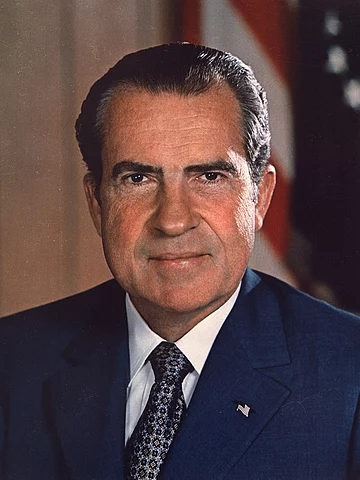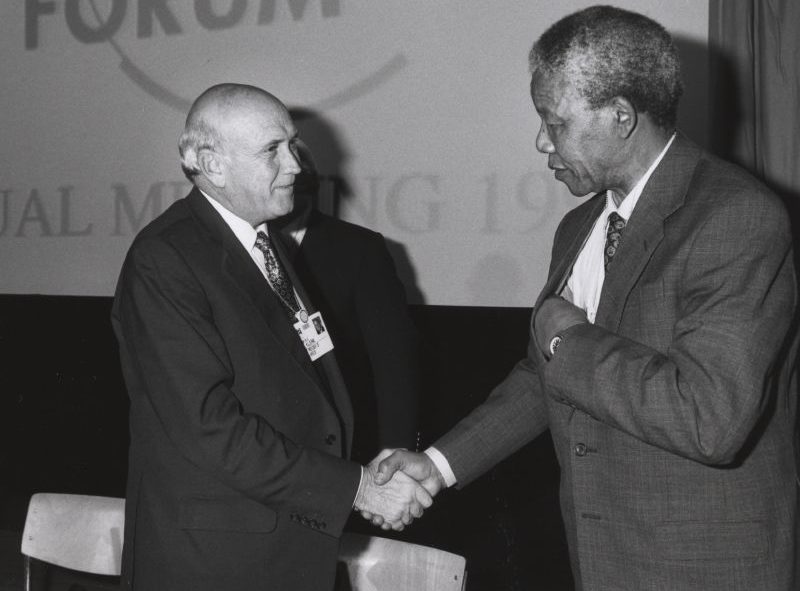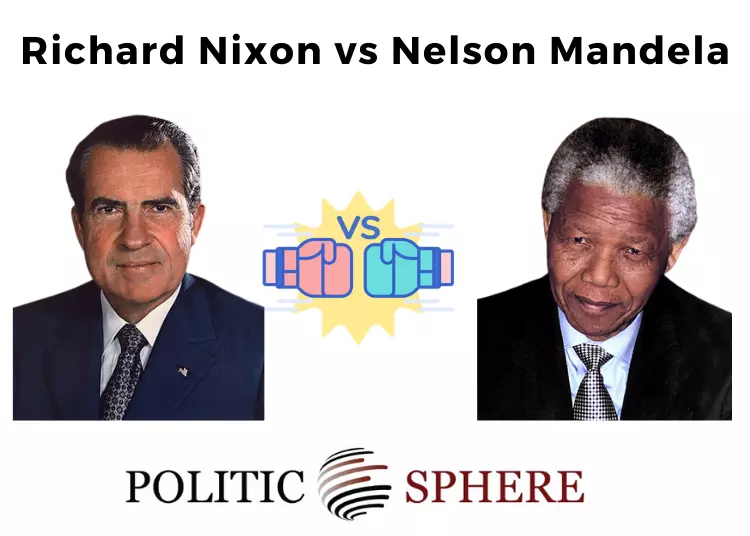Richard Nixon, the 37th president of the US, a Republican, who also served as a vice president from 1953 to 1961 and former South African leader Nelson Mandela had their accomplishments in terms of fighting for civil rights and bringing equality. Since they reigned in different environments, their efforts were shaped by the surrounding occurrences in America and the Southern Africa plateau.


In a recorded interview of Jonathan Movroydis and Robert J. Brown, a Nixon Foundation Board Director and owner of B&C International posits certain similarities which are drawn between Nixon and Mandela when it comes to civil rights in their respective countries [Source].
Mr Brown stated that former president Nixon worked tirelessly in upholding civil rights and his first impression of Nixon was “he was a man who kept his word and who wanted to do the right thing. That’s what impressed me about him”. Brown spoke of Nixon’s efforts of supporting the minority groups of people by signing an executive order empowering minority enterprise and black college programs after he assumed office.
In signing this order, Brown posited that “We figured that the U.S. Government belonged to everybody and it made no difference what their color was or what their station in life and that everybody ought to have a chance at government business”. Such sentiments were shared by Mandela as he fought racial segregation in his own country.
He is described as an “anti-Apartheid activist, which means that he fought for those who were disadvantaged by the system of racial segregation [Source]. He received a Nobel Peace Prize together with F. W. Klerk in 1933 as he managed to stop a civil war and “he ensured that no one would be discriminated against because of the color of their skin”.
Both Nixon and Mandela made significant progress in desegregating the political arena and the education sector. Nixon is applauded for desegregating schools in the South while Mandela is remembered for promoting the enrolment of black students in urban universities and awarding them scholarships.
Deviant Art created a rap battle parody between Nixon and Mandela and posited that “This Battle was definitely a hard one to write for defending Nixon, but especially hard for defending good solitary disses for such a great man as Mandela” [Source]. A comparison is carried out between these leaders as they pose each other’s achievements and flaws during their reign. In exchange for the disses, Nixon applauds himself for sending a man to the moon while Mandela “sat around dreaming about creating a Rainbow Nation”. He jabs at Mandela for failing to curb crime rates in South Africa and how he staggered in dealing with HIV, which took a lot of lives in the Southern Africa country.
Mandela responds by taking credit for initiating a movement against apartheid and finally ending the racial segregation in South Africa. After his arrest, a nationwide protest erupted in which protestors were chanting ‘Free Mandela’ and this shows how influential he was to the people of his country. In the parody, Mandela also mocked Nixon for becoming a president but losing to Kennedy and that he “will never live up to Eisenhower ”.
Mandela slams Nixon for being a crook who wiretapped elections until the media exposed him and caused fatalities in Cambodia. He admits to having overlooked the AIDS pandemic but states how he made up for his mistakes through charity organizations.
Nixon replies by refuting that he is no crook and takes credit for fixing relations with China after he personally approached Chairman Mao, and claims to have brought “equalization to gender and race in education”. He also stated that the idea of ‘Going Green’ with EPA was his baby and it was aimed at securing the future of generations to come. He jabbed Mandela for attending guerrilla warfare training in Algeria where he was taught sabotage and proceeded to blow up power stations which then affected economic processes in South Africa.
Mandela’s last verse in the rap battle parody points to how the South African leader managed to unite blacks and white through ‘Truth and Reconcile Commissions’, something all the American presidents failed to do. Former US president Abraham Lincoln freed the slaves, but failed to stamp out racial segregation, and the first black American president, Barack Hussein Obama did not succeed in dealing with racial tensions and hate crimes.
But Mandela was able to put out apartheid and ushered his country into a new era of majority rule. Mandela shot Nixon for the ‘Sallie Mae’ which plunged a lot of college students into debt when they pursued tertiary studies, and when these students protested, Nixon would order security services to fire at them.
Nixon and Mandela were presidents in different timelines so their actions were solely dependent on what was happening during that period, and history shows that they both exerted a lot of effort in achieving their presidential objectives.






































